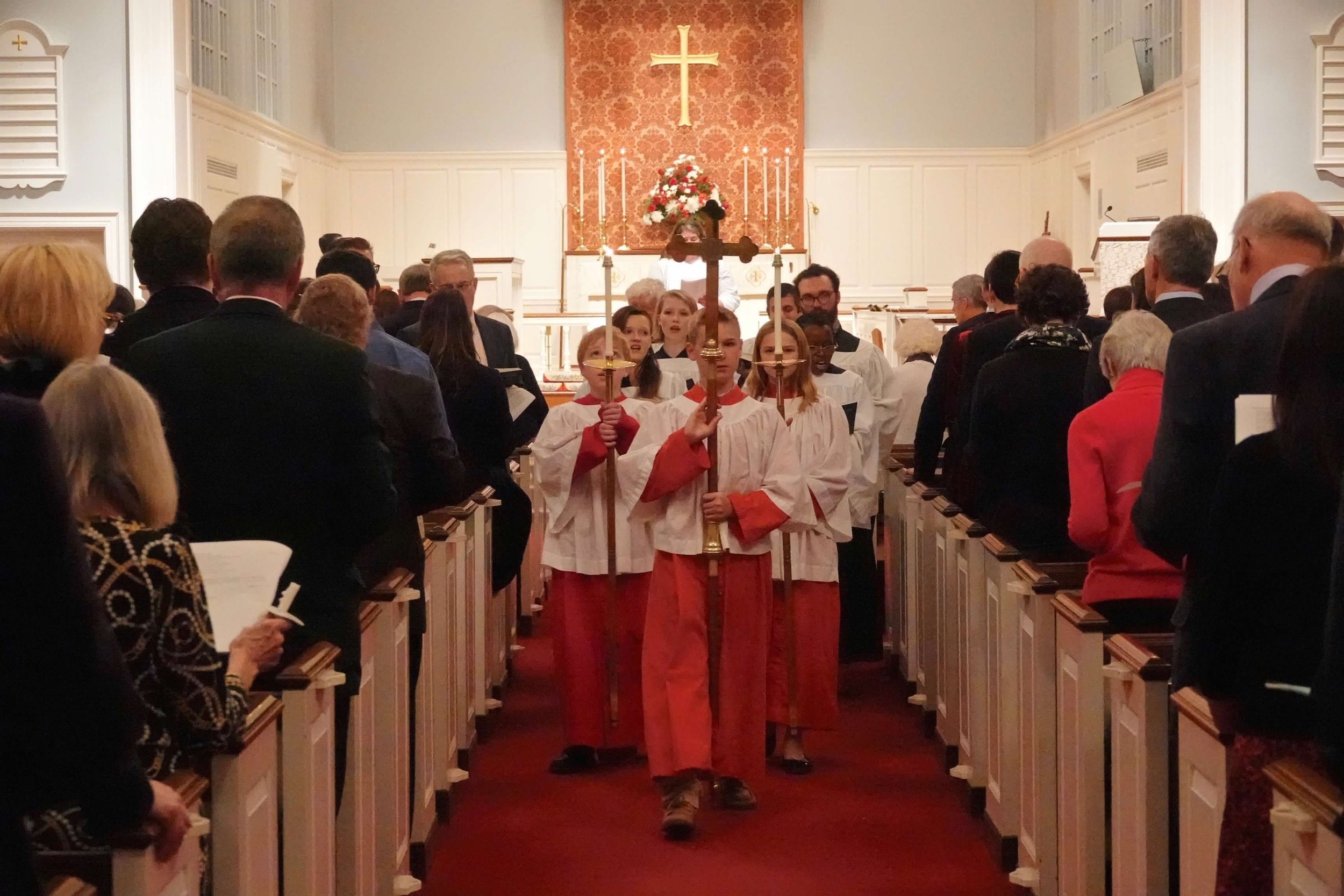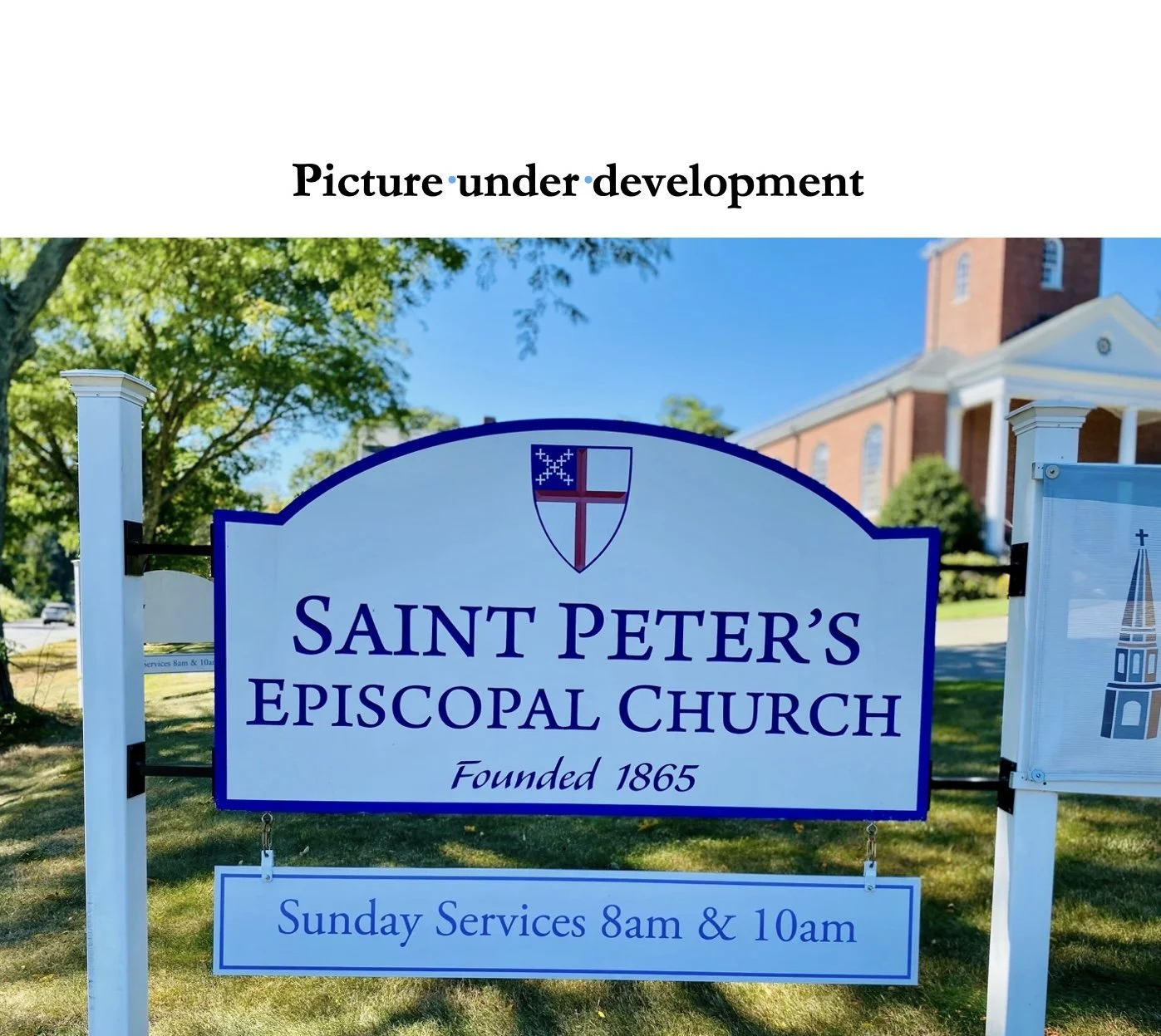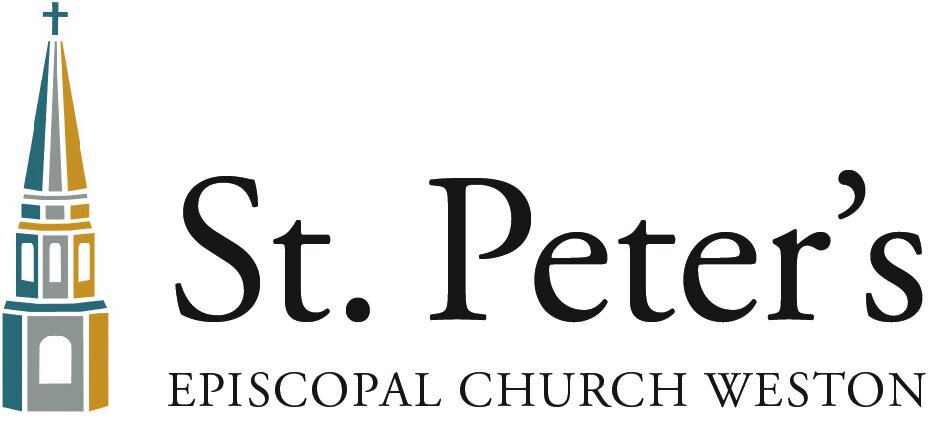Lay Liturgical Ministries
At St. Peter’s Weston, there are many roles that fall under the category of lay liturgical ministry.
-

Acolytes
Acolytes assist with many different aspects of worship. From carrying the cross in the opening procession, to holding the candles during the reading of the gospel, to assisting with the preparations for Holy Communion, acolytes are an important part of any church service. Children 10 and up are welcome to serve as acolytes at St. Peter’s.
-

Chalicist
Chalicists are the lay people you see in white and black at the altar helping clergy during the Eucharist or Communion. Their primary task is to walk behind the person distributing the bread with the cup of wine. Chalicist’s give the wine with the words, “the blood of Christ, the cup of salvation”. Some people intinct or dip the bread in the wine and some drink directly from the cup. Regardless of which method an individual uses, chalicists are vital to the congregation, because they help make the sacrament of the Eucharist happen. Sacraments are a key part of Christianity, they help define who we are as people of faith.
-

Ushers
Ushers represent an ancient liturgical ministry in the history of Christian worship and are often the “first face” of the parish family to newcomers. Ushers provide essential assistance at worship services on Sundays. Our tasks include meeting and greeting parishioners, distributing programs, presenting the elements for Communion at the Altar, and collecting and presenting the offering. The Ushering ministry always welcomes new members. Thanks to the strong support the ministry has received, we are able offer maximum flexibility to volunteers and keep individual commitments at an enjoyable level. Ushering is a great way to engage fellow parishioners, enjoy church youth, and share in the special fellowship the ministry has to offer. We hope all interested volunteers will step forward and inquire, and ultimately join our effort.
-

Lector & Litanist
Lector
A lector is a person from the congregation who reads the scripture lessons. There are two lessons, which are the Old Testament Lesson and the New Testament Epistle. A lector practices the reading beforehand and uses a microphone. Being a lector makes scripture come alive. Saying the words makes the lesson dynamic and real. Scripture lessons are important, because they teach us about our belief system. They are excerpts from the Bible, which along with tradition helps define how we live.
Litanist
The litanist is the individual who reads the prayers of the people. The prayers of the people are a call and response between one voice and the Congregation. The call and response follows one of several patterns or forms found in the Book of Common Prayer. A litanist functions as the leader during the prayers of the people. They read a line and the congregation reads a line. To do this they are familiar with the version of the prayers of the people which is being used that morning and speak from a microphone. A leader for the prayers of the people is needed, because she or he brings us together as a community, giving voice to both our joys and our sorrows.
